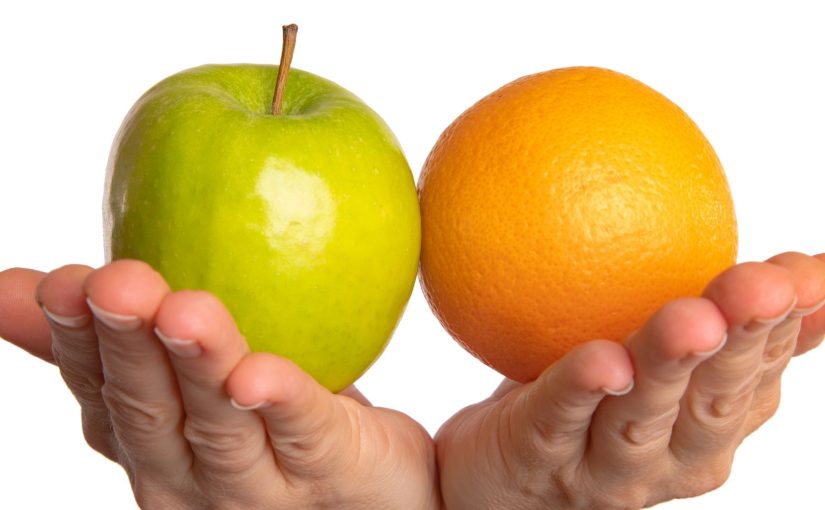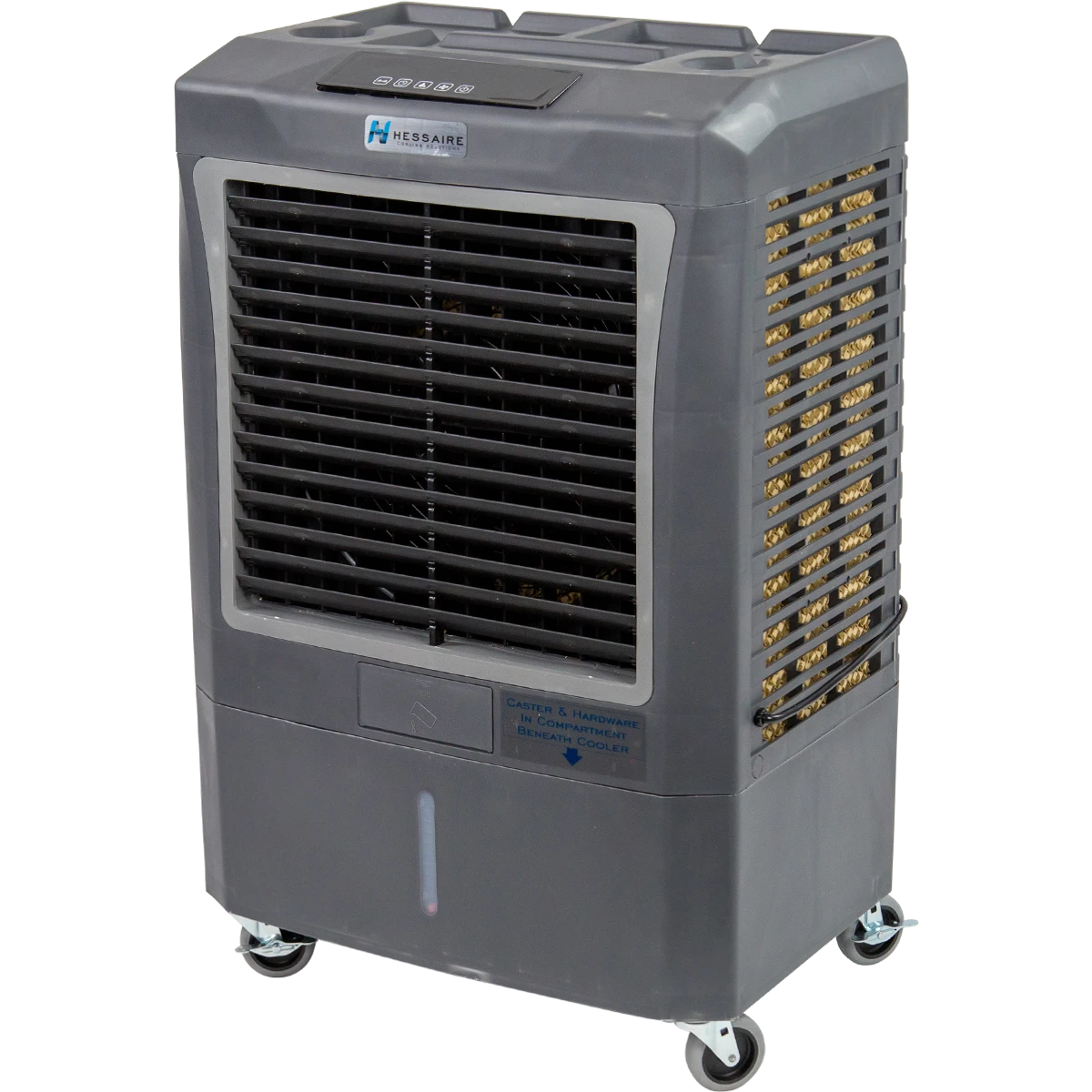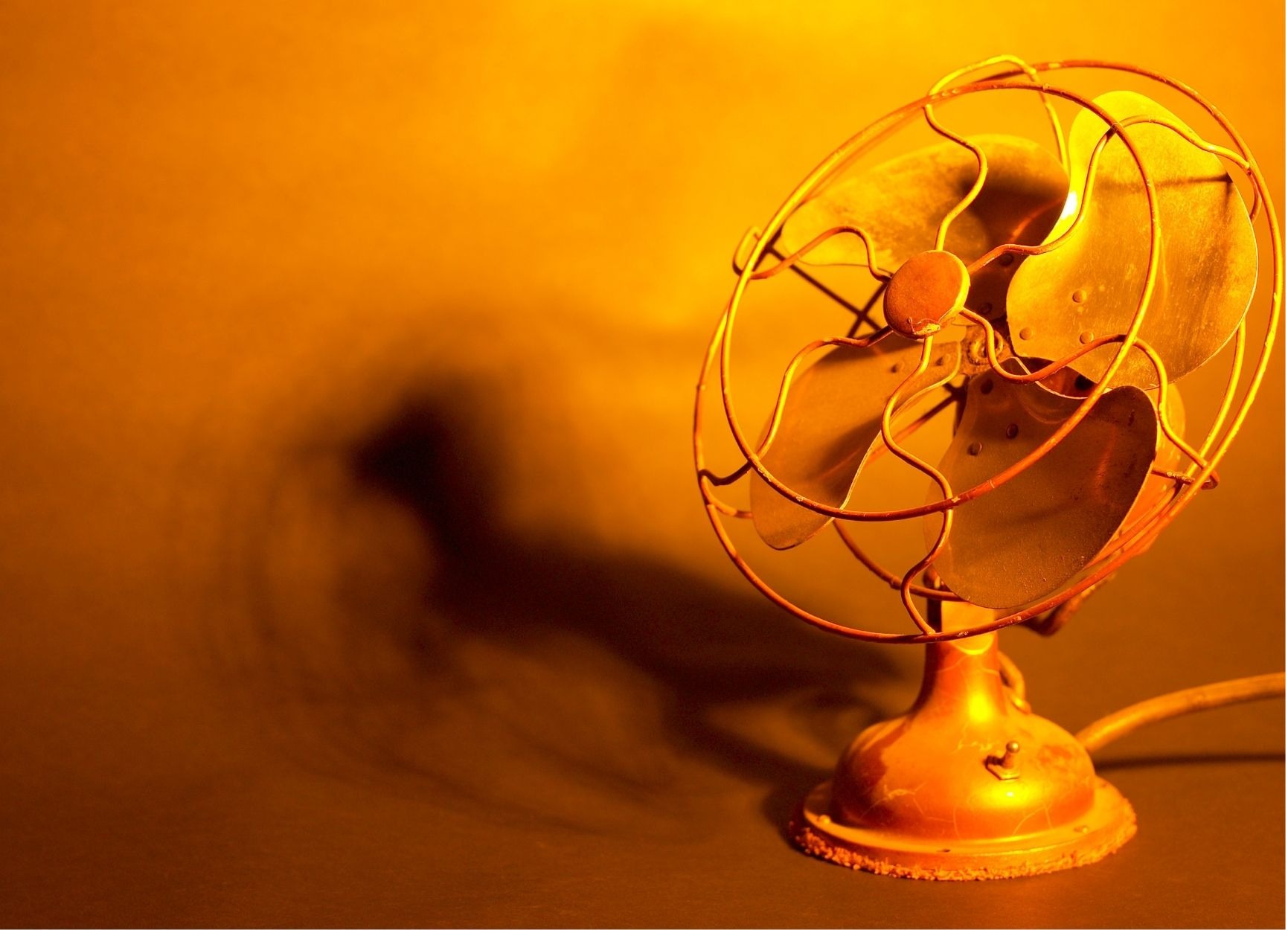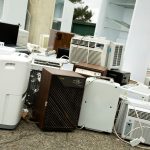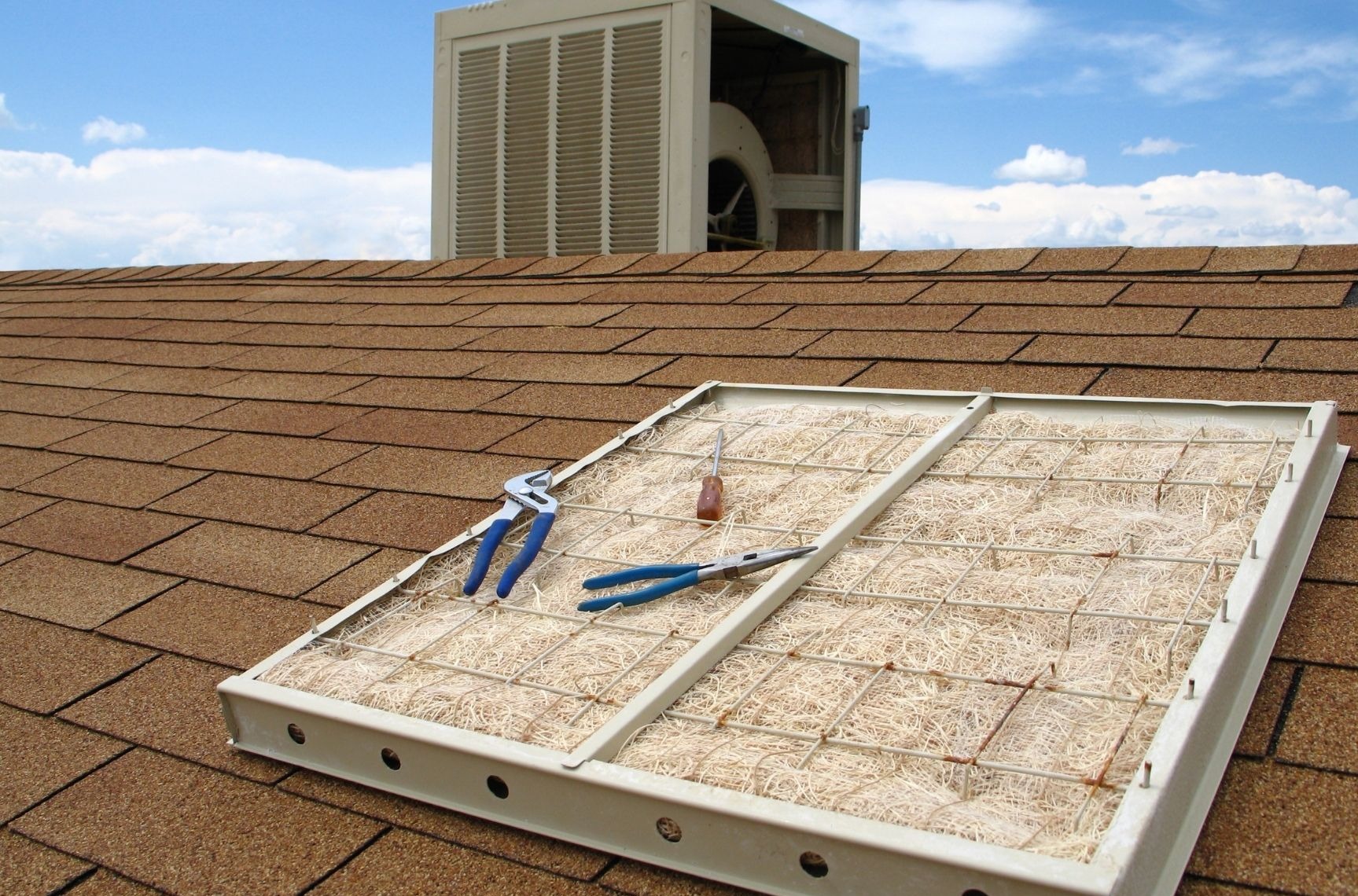Table of Contents
Deciphering Air Purifiers vs. Air Coolers: Essential Functions Unveiled
Air purifiers and air coolers serve distinct functions in enhancing indoor comfort; the Air Purifier cleans the air by removing pollutants and allergens, while the Air Cooler cools it through water evaporation.
Choosing between them hinges on your primary need:
Improved air quality or a cooler environment.
This guide breaks down the essentials of each device, helping you make an informed decision for your home.
Comparison Table: Air Cooler vs. Air Purifier
| Feature | Air Cooler(swamp cooler) | Air Purifier |
|---|---|---|
| Primary Function | Cools the air through water evaporation. | Cleans the air by removing contaminants. |
| How It Works | Pulls in hot air and passes it over water-soaked pads, where the air cools as the water evaporates. | Draws air through filters to trap dust, pollen, allergens, and other pollutants. |
| Ideal Use | Reducing room temperature, especially in dry, hot climates. | Improving indoor air quality, beneficial in any climate, especially for those with allergies or respiratory issues. |
| Cooling Effect | Yes, lowers air temperature. | No, does not affect temperature. |
| Air Quality Improvement | Minimal; primarily adds humidity, with some models including basic dust filters. | Yes, significantly improves air quality by removing various pollutants. |
| Added Humidity | Yes, increases humidity through the evaporative process. | No, does not add moisture to the air. |
| Energy Efficiency | Generally more energy-efficient than traditional air conditioners. | Varies by model, but does not use as much energy as cooling devices. |
| Maintenance | Requires regular water refills and pad cleaning/maintenance. | Requires periodic filter replacements or cleaning, depending on the filter type. |
Winix Air Purifier/ See More Here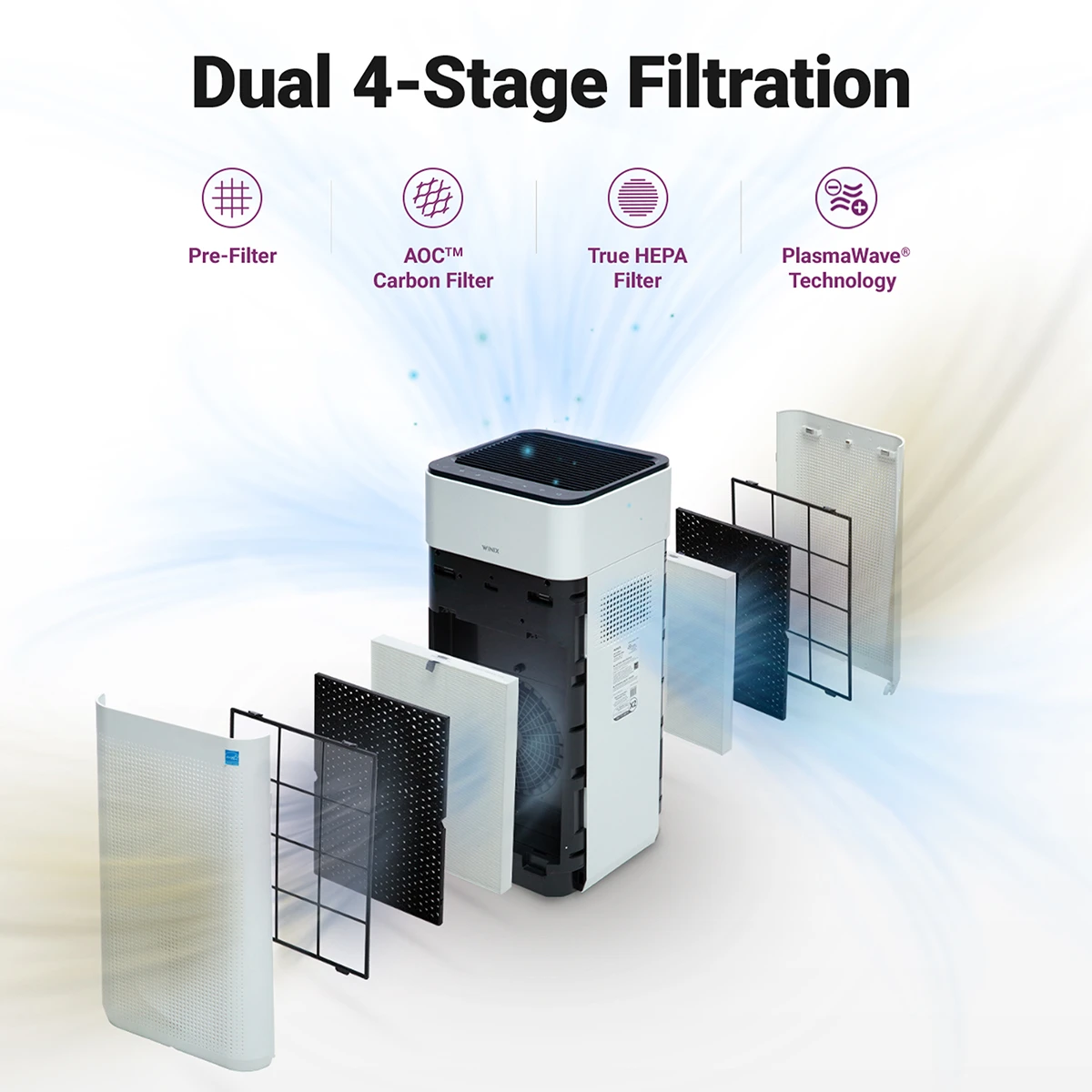
Air Purifiers vs. Air Coolers: Navigating the Sea of Home Air Products
In today’s market, where the shelves are brimming with gadgets promising to improve your indoor air quality and comfort, it’s easy to feel adrift.
Two such devices that often get tangled in the nets of consumer confusion are air purifiers and air coolers.
At first glance, they might seem to serve a similar purpose, but they’re as different as fish and birds.
Let’s dive into the clear waters of understanding to help you find the right catch for your home.
Air Purifiers: The Silent Guardians of Air Quality
Imagine an invisible shield around you, filtering out all the unseen particles that could irritate your lungs or trigger allergies. That’s what an air purifier does. It’s your personal air guardian, ensuring that the air you breathe is as clean as possible.
- What They Do: Air purifiers pull in your home’s air and pass it through a series of filters, capturing everything from dust and pollen to smoke and pet dander.
- Who Needs It: Ideal for those with allergies, asthma, or anyone who wants to reduce the amount of indoor air pollution in their living spaces.
- Key Features: Look for HEPA filters for the best particle removal, and consider activated carbon if reducing odors is also a priority.
Air Coolers: The Desert Oasis in Your Living Room
Now, picture a mirage in the desert, an oasis where water brings a refreshing coolness to the scorching heat. That’s the essence of an air cooler, using the natural process of evaporation to cool the air.
- What They Do: Air coolers, also called swamp coolers, use water-soaked pads and a fan to evaporate water, which cools the air in the process. It’s a simple, energy-efficient way to bring down the temperature in dry climates.
- Who Needs It: Best suited for those in hot, dry areas where the added humidity can be a comfort rather than a nuisance.
- Key Features: Portability and low operating costs are significant plus points. Some models might include additional features like dust filters, but they won’t replace an air purifier’s functionality.
HessAire 3100 Air Cooler-See More Here
Casting the Net: Choosing What’s Right for You
Understanding the fundamental differences between these devices can steer you towards the right choice for your home:
- Air Quality vs. Temperature: If your main concern is reducing allergens and pollutants, an air purifier is your go-to. If you’re looking to cool down your space efficiently, consider an air cooler.
- Climate Considerations: Air coolers thrive in dry heat but might not be as effective in humid conditions. On the other hand, air purifiers work well in any climate.
- Health and Comfort: For those particularly sensitive to air quality, such as allergy sufferers, an air purifier might be indispensable. If dry heat is your primary discomfort, an air cooler can provide relief.
The Catch of the Day
While both air purifiers and air coolers improve your living environment, they serve very different purposes. By understanding these differences, you can navigate the vast sea of home air products with confidence, ensuring you bring aboard the right device to meet your needs.
Now that you’ve got a clearer picture of how air coolers and air purifiers stand apart in terms of their core functions, you might be wondering which one is right for your home or perhaps you’re considering if you might benefit from having both.
To help you dive deeper into each device and make the most informed decision, we’ve put together comprehensive guides that cover everything from how to choose the best model to understanding maintenance requirements and more.
Explore Further
- Air Coolers: Your Guide to Refreshing, Energy-Efficient Cooling
Want to beat the heat without breaking the bank? Our detailed guide on air coolers will walk you through the best models on the market, how to maximize their efficiency, and tips for maintenance. Dive into the world of air coolers here. - Air Purifiers: Breathe Easy with Clean, Healthy Air
If you’re looking to improve the air quality in your home, especially if you or your loved ones suffer from allergies or respiratory issues, our comprehensive air purifier guide is for you. Learn about the different types of filters, the top-rated purifiers, and how to maintain them for optimal performance. Start breathing easier by exploring our guide here.
Choosing the right air solution can significantly enhance your comfort and health at home. By exploring these dedicated resources, you’ll be equipped with the knowledge to select the perfect device—or combination of devices—that aligns with your specific needs.
Understanding Air Care Devices:
A Beginner’s Glossary
Navigating the world of home air care devices can be overwhelming, with various options each serving a unique purpose.
To help you understand the essentials, we’ve compiled a glossary of key air care devices. Whether you’re looking to cool, purify, or simply circulate the air in your home, this guide lays out the basic functions of each device, providing a clear starting point for making informed decisions about improving your indoor environment.
Glossary of Basic Air Care Devices
Air Cooler: A device that uses the evaporation of water to cool the air, ideal for dry climates. It pulls hot air through water-soaked pads, cooling and humidifying the air in the process.
Air Purifier: An appliance designed to clean the air by removing pollutants, allergens, and other harmful particles through a system of filters, improving indoor air quality.
Air Conditioner: A system that cools and dehumidifies indoor air using a refrigeration cycle, making it comfortable during hot weather. It can be central (for entire buildings) or unit-based (for individual rooms).
Dehumidifier: A device that reduces humidity levels in the air, usually for health or comfort reasons, or to eliminate musty odor. It works by extracting water from the air and collecting it in a tank.
Diffuser (Aromatherapy Diffuser): Used primarily for distributing essential oils into the air for aroma and therapeutic benefits, some diffusers also function as small humidifiers.
Fans: Electric devices with rotating blades used to create airflow. They do not cool the air but can make a room feel cooler by moving air around and aiding in sweat evaporation on the skin.

